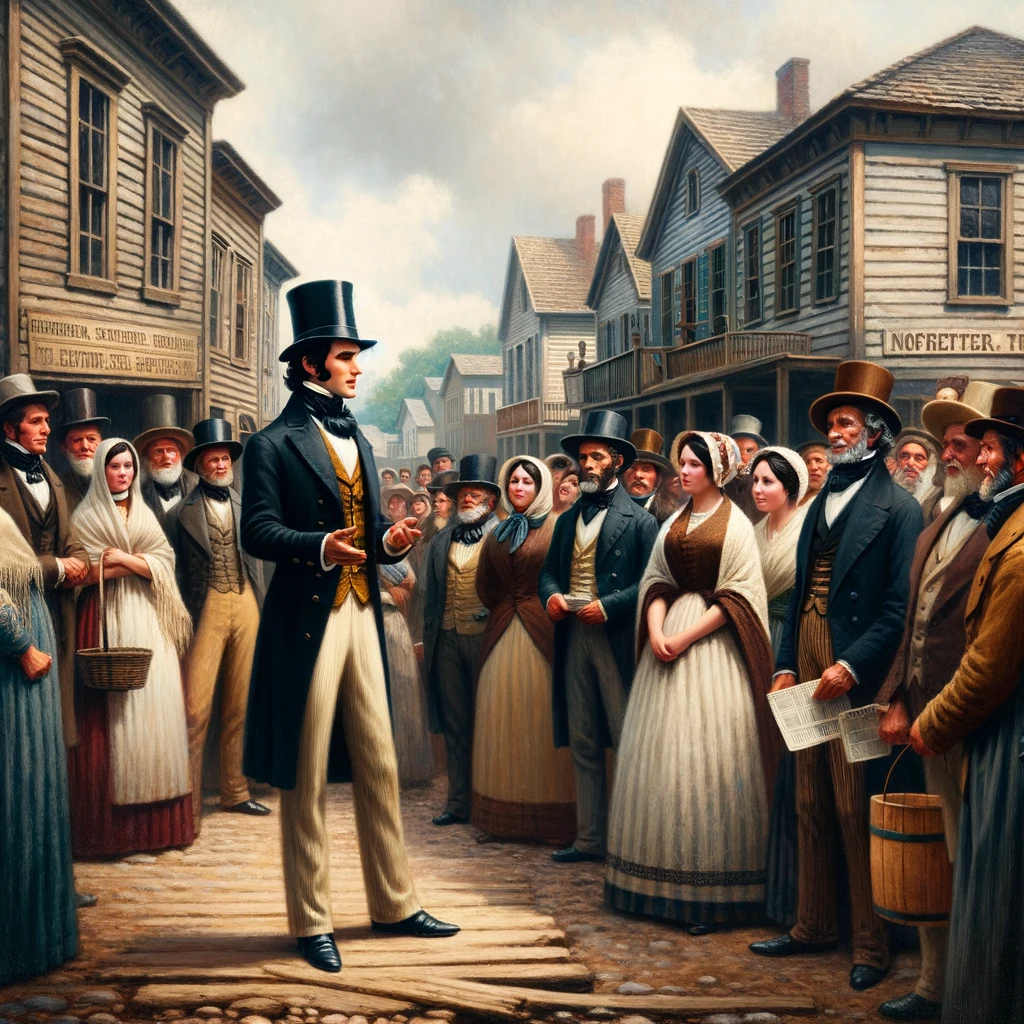
On Tyranny: Twenty Lessons From The Twentieth Century
Timothy Snyder
I don’t believe I have written a book report since I was a freshman in college. This is a small book that I believe is well worth your time to read. I mean small book quite literally. It’s about 4 1/2 inches by 6 1/2 inches and only about 126 pages of fairly wide spaced text. You can read the entire book in an afternoon and still have time left over. The book is also available as an audiobook, and it’s combined with Twenty New Lessons From Russia’s War On Ukraine. I got the audio book and listened to it as well. That will take about eight hours to complete.
I’m calling this a book report rather than a book review because I want to tell you what’s in the book rather than what I think about it so that you can form your own opinion. First, I’ll give you an overall impression. It’s thought provoking and raises issues of concern to us today. You may not agree with it. I don’t agree with everything that he said. I found some of his 20 lessons to be redundant because I thought he was stretching to get 20 lessons for the 20th century. I also found one or two of them to be painfully obvious. What follows is just a summary of the book. Read it and e-mail me or call me if you’d like to discuss it. I will send the book to the first person who asks for it, but only if you promise to pass it on when you’re finished.
Doctor Snyder is a professor of history at Yale University. He specializes in Central and Eastern Europe and has spent considerable time in Ukraine. He’s the author of 15 books and reads five European languages and can converse in ten.
Preface
The book begins with a preface in which Doctor Snyder establishes the importance of historical awareness. He describes the failure of some 20th century European democracies and their descent into authoritarian rule. He uses these examples to illustrate how democracy cannot be taken for granted. He makes the argument that democracy is fragile and must be defended. He further argues that even in the United States, the continuation of our democracy is not a given and we must fight for freedom and maintain constant vigilance over our democratic processes.
Each of his twenty lessons is contained in a separate chapter, varying from a few pages to a single sentence.
The Twenty Lessons
- Do Not Obey In Advance: Many authoritarian regimes have achieved their power from the people’s willingness to conform without being forced. Do not comply with unjust policies that are not being actively enforced.
- Defend Institutions: Democratic institutions such as courts, the press, and unions are an important part of a free society. We must support and defend them against attacks and subversion.
- Beware The One-Party State: A multiparty system is crucial for the survival of liberty. The rise of a one-party system often precedes the decline of democratic government.
- Take Responsibility For The Face Of The World: The use of symbols in public spaces matters. Authoritarian regimes can shape public perceptions by co-opting national symbols and using them to create division rather than unity. Be vigilant for and challenge symbols of hate and remove these symbols from our public spaces.
- Remember Professional Ethics: Professionals, especially those in law, medicine, education and government service must uphold ethical standards, even when pressured to conform to the aims of authoritarian regimes. Their integrity is vital for maintaining democracy.
- Be Wary of Paramilitaries: Resist the rise of unofficial armed groups that support authoritarian figures. Such groups may eventually take the place of the legally constituted police and military services. “When the men with guns who have always claimed to be against the system start wearing uniforms and marching with torches and pictures of a leader, the end is nigh. When the pro-leader paramilitary and official police and military intermingle, the end has come.”
- Be Reflective If You Must Be Armed: If you are part of law enforcement or the military, refuse to participate in unjust actions or repressions of the population. Ensure that those who bear arms do so with a deep sense of responsibility and ethics and a great regard for the value of democracy.
- Stand Out: Authoritarian regimes thrive on compliance. Demonstrate opposition publicly and show visible descent and encourage others to show resistance whenever possible.
- Be Kind To Our Language: Be precise in your use of language and avoid repeating the phrases made popular by authoritarian leaders. Independent thinking is facilitated by the careful use of language. Manipulation of language is a powerful tool for the control of the population.
- Believe In Truth: Truth is the linchpin of justice and democracy. Uphold and defend objective truths. Reject the false narratives or “big lies” spread by authoritarian regimes. Make every attempt to shed light on their falsehoods regardless of how often or loudly they proclaim them.
- Investigate: Seek out reliable sources of information. Support independent journalism. Identify, evaluate and encourage trusted sources. Do not accept any claims by the authoritarian regime without your personal verification. Remember critical thinking is important to resisting manipulation.
- Make Eye Contact and Small Talk: Build personal connections within the community to foster solidarity and resilience. Visible civic involvement demonstrates unity and a commitment to democratic principles.
- Practice Corporal Politics: Participate in protests, marches, and public events. Physically demonstrating support and civic engagement shows a strong commitment to democratic principles.
- Establish A Private Life: Protecting your privacy from surveillance is essential. Authoritarian regimes often invade personal spaces to control and manipulate individuals.
- Contribute To Good Causes: Support organizations and causes that defend democracy and human rights. Both financial and moral support will strengthen resistance.
- Learn From Peers In Other Countries: Understand how some nations have succumbed to authoritarianism while other nations have resisted it. Learn from their experiences and strategies.
- Listen for Dangerous Words: Be alert to the use of language that demonizes opponents or glorifies violence. Such rhetoric often precedes more severe actions against targeted groups. Be sensitive to efforts to convert the population to harmful ideologies through repeated derogatory speech.
- Be Calm When The Unthinkable Arrives: Stay composed in moments of crisis and resist the urge to act impulsively. Authoritarian leaders often attempt to exploit chaos to seize power. Be alert for such attempts and be ready to counter them.
- Be A Patriot: True patriotism involves defending democratic values and principles, not blind loyalty to a leader or party. Waving flags and shouting slogans is not patriotism. Defending democracy is the true mark of a patriot.
- Be As Courageous As You Can: “If none of us is prepared to die for freedom, then all of us will die under tyranny.” (That is the total of this lesson; perhaps the most important one of all.)
Epilogue
The book concludes with an epilogue entitled History and Liberty. In the epilogue Doctor Snyder discusses his theories of the Politics of Inevitability and the Politics of Eternity.
The Politics of Inevitability is the belief that history naturally progresses in a linear forward direction typically towards a better future. It assumes that liberal democracy and capitalism will inevitably spread across the world leading to a more prosperous and freer global system. Human forces are seen as predictable and human activity is often downplayed. People who live under the politics of inevitability tend to believe that the current state of affairs will persist because it represents the end point of political and economic evolution.
The Politics of Eternity, on the other hand, rejects the linear progression of history and emphasizes a cyclical view. It supposes that nations are perpetually threatened by external forces. It glorifies a supposed golden age of the past that is idealized and mythologized. It views current politics as a struggle to return to that idealized past.
I found his discussions to be more theoretical than practical. I can see aspects of both in most current societies. I invite you to please read this and I would love to discuss it. I may be missing something in his presentation of inevitability and eternity.
In Conclusion
If you are concerned about the survival of democracy, read this book.



What Would George Washington and Thomas Jefferson Think About Our Current Political Climate?
By John Turley
On October 16, 2024
In Commentary, History, Politics
In considering what George Washington and Thomas Jefferson might think of today’s political situation, it’s tempting to view their perspectives through the lens of nostalgia, believing that the founders had an idealistic vision that, if followed, would have prevented many modern problems. It’s impossible of course to know what they may have thought about our current environment. Certainly, such things as a 24-hour news cycle on cable television and social media would have been beyond their comprehension. While both men lived in a vastly different era, their writings and philosophies give us a sense of how they might respond to the polarization and tensions we witness today.
George Washington: A Warning Against Partisanship
George Washington was deeply concerned about the rise of factions in the United States. (Political parties as such were unknown at the beginning of our republic.) In his famous Farewell Address in 1796, he warned that factions could lead to division and weaken the unity of the country. Washington was worried that faction (party) loyalty would surpass loyalty to the nation, creating conflict between groups and impairing the ability of government to function for the common good. He feared that excessive partisanship would “distract the public councils and enfeeble the public administration,” leaving the nation vulnerable to foreign influence and internal discord.
If Washington could observe today’s political environment, he likely would be saddened by the partisanship which dominates political discourse. The gridlock, belligerent rhetoric, and divisiveness we experience today demonstrate the appropriateness of his concern. Washington would likely advocate for a return to greater civility, urging Americans to focus on the common good and to set aside factionalism for the sake of national unity. While political parties have become integral to our system, Washington would likely still press for cooperation, mutual respect, and compromise among all groups.
Thomas Jefferson: Liberty, Democracy, and the People’s Role
Thomas Jefferson, while more supportive of political parties than Washington, had his own complex views about governance. Jefferson believed in the power of the people to govern themselves and was a passionate advocate for liberty, democracy, and decentralization. He distrusted concentrated power, whether in government, or economic institutions, and feared that it could lead to tyranny. Jefferson was famously a champion of agrarianism and believed that widespread participation in the democratic process was the best defense against corruption and the loss of liberty.
Jefferson, while a proponent of states’ rights and individual liberties, might view polarization as a threat to democratic ideals if it stifles dialogue and compromise. He believed in the potential for free men to govern wisely, but would caution against the erosion of civil discourse that might follow the rise of extreme factionalism
Faced with the highly charged political debates of today, Jefferson would likely express concern over the increasing centralization of power in government, banks, and large corporations. He would, without doubt, be troubled by the outsized influence of money in politics.
Jefferson was also a firm believer in education as a cornerstone of democracy; he would stress the importance of an informed electorate, particularly in an age where misinformation can spread rapidly.
However, Jefferson was no stranger to political conflict, having played a central role in the fiercely partisan battles of his time. He understood the value of vigorous debate but would probably urge that such debate remain focused on the core democratic principles of liberty, justice, and equality rather than devolving into personal attacks.
Media and Civil Discourse
Of course, it is impossible to know what Washington and Jefferson would think about the current role of media, particularly social media which would be beyond anything in their experience. Washington felt strongly aggrieved by the attacks upon him in the newspapers of the time. He felt unfair attacks would undermine national unity. Jefferson, on the other hand, was a strong proponent of freedom of the press. He was also very adept at the use of newspapers to accomplish political means.
However, it is likely that both would caution against the dangers of misinformation and partisan bias to distort public perception. Most likely both would emphasize the need for a responsible press that distinguishes between fact and opinion and supports a healthy democracy. Both would be opposed to using false or misleading statements to influence the public.
Unity and Civic Responsibility
Despite their differences, both Washington and Jefferson would likely agree on one thing: the importance of unity and civic responsibility. They envisioned a country where citizens were deeply involved in a participatory government, contributing not just with votes but with informed, constructive dialogue. Washington would call for a spirit of national unity above party lines, while Jefferson would insist that the preservation of liberty relies on active and informed participation from the public.
Both founders would encourage a healthier, more cooperative political environment, one where differences are respected and not allowed to fracture the country. They would likely see today’s polarization as a threat to the very ideals they fought to establish, and both would urge Americans to remember their shared values.
Conclusion
In short, George Washington and Thomas Jefferson, while men of their own time, had insights that are still relevant today. Neither man could have predicted the exact nature of modern politics, but their wisdom offers enduring guidance: political disagreements must not undermine the unity, liberty, and civic responsibility that are the foundation of the American experiment. We owe it to them not to lose the promise of the American Revolution.